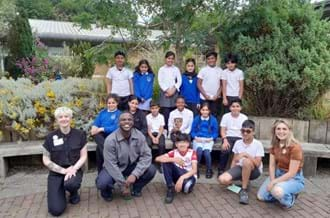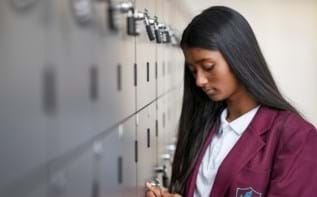Over 100 professionals join event to mark the launch of new Pro Bono Economics Report
Over 100 people gathered on Thursday, 28 July, to hear the results of Place2Be and Pro Bono Economics’ recent report. The report showed that for every £1 invested in children’s mental health, there is an £8 return in long-term economic benefits to society.

Professor Robin Banerjee, Head of the School of Psychology at the University of Sussex and a member of Place2Be’s Research Advisory Board, chaired the online event. It illustrated the importance and long-term benefits of Place2Be’s work in schools across England, Scotland and Wales.
The report comes just as the Department for Health and Social Care in England closes its extensive consultation on mental health and wellbeing, igniting hopes for additional investment in the area.
Lord Gus O'Donnell, Chair of Trustees of Pro Bono Economics and former Cabinet Secretary, emphasised the importance of evidence, especially at this time:
“I know from leading the Treasury that hard evidence really matters. Our aim is to help charities measure impact in order to understand what works and prove their case. We know that those with the lowest wellbeing suffer from mental health issues, and there is a societal and fiscal impact from that."
Pro Bono Economics economist Rachel Gomez wrote the report. Explaining the research process and impressive results, she said:
"According to 2021 NHS Digital data, 1 in 6 children are estimated to have a "probable mental disorder". That's about one to two more children in every classroom with a probable mental disorder in 2021 compared to 2017. It is, therefore, particularly timely that we are able to evaluate Place2Be's counselling service in primary schools. We estimate the resulting economic benefits using a study linking childhood mental health and probabilities of certain later life outcomes (Paull and Xu, 2017). We then monetise the economic benefits to society from these later life outcomes, which include employment, hourly wage, depression, crime, smoking, and exclusion/truancy."
“Since then, Place2Be have collected more data on the mental health outcomes of the children they support. They worked with the University of Exeter to find a matched comparison group. This allows us to better isolate and estimate the economic impact of the counselling service, thereby enabling us to arrive at a stronger conclusion that reflects the stronger evidence available.
“We now estimate that the cost per child for one-to-one support is around £1,100, which equates to £4m per cohort. We calculate that the generated long-term benefit is about £8,700 per child, which equates to £36m per cohort. In short, for every pound spent, the service generates £8 in long-term benefits to the child, government, and wider society. Overall, our research suggests that the service has a significant positive impact on the average child’s mental health, and it delivers excellent value for money, despite the challenges of the pandemic.”
Catherine Roche, Chief Executive of Place2Be, welcomed the report and explained what this would mean for the charity and, indeed, the sector.
A Q&A session followed, with some members of the audience posing questions about whether the Government could do more in this area.
Lord O’Donnell offered his view: “The Government will respond to what is the main concern now, and right now, the cost of living is on the Government's minds. However, I am confident this research shows that there is a strong case for investment – for the long-term but also in the short-term, preventing school exclusion, reducing waiting lists and getting ahead of anti-social behaviour”.
So what research is coming next? Alongside early intervention, Place2Be also promotes a whole-school approach, fostering a climate of support across the entire system in order to make lasting change.
Roche explains: “Supporting children through targeted work, as well as supporting parents, carers and staff, is crucial to create a culture of wellbeing. Now we have such robust evidence on one-to-one counselling, we are embarking on an exciting project to evidence the impact of our whole-school approach, with funding thanks to the Law Family Foundation in Salford. The project will span a period of four years, so watch this space.
“Thank you to everyone who has joined us today and on the journey to get here. We’re excited to see where we go next”.
News & blogs

The Young BAFTA Roadshow with Place2Be arrives in Birmingham
Read the press release of the Young BAFTA Roadshow visit with Place2Be at Birmingham.
Read more
The Young BAFTA Roadshow with Place2Be arrives in Oldham, Manchester
Read the press release of the Young BAFTA Roadshow's visit with Place2e at Oldham, Manchester.
Read more
The Young BAFTA Roadshow with Place2Be arrives in Enfield
The Young BAFTA Roadshow with Place2Be arrives in Enfield on 1 July 2025.
Read more



